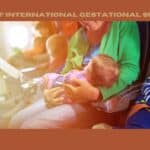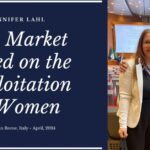Here is my letter to the editor in today’s San Francisco Chronicle:
Debra J. Saunders’ column “Baby farming isn’t fair” (Oct. 1) brings to light the ugly reality of surrogacy contract pregnancies that many people are woefully unaware of or are unwilling to look at head-on.
While we have sympathy for the Kowalskis’ struggle with infertility, how could they not think that what they were doing was wrong? And how could they not see how money corrupts the decisions made by poor women and their families in India? Surrogacy by its very nature is exploitative to women, reducing them down to wombs for rent, and the children they bear as objects to be purchased.
The Kowalskis are worried that they will be seen as “bad” people. Maybe they should have thought more deeply about this before they signed their contract. Good people don’t pay poor, destitute people to gestate babies for them in exchange for cash. Good people don’t take a newborn baby from the only person they have ever known, its birth mother, and justify it as win-win.
The Kowalskis are right to be worried that they be seen as bad people since they used a poor, destitute woman like a mule, as Saunders describes.
Jennifer Lahl, Center for Bioethics and Culture
Author Profile

- Jennifer Lahl, MA, BSN, RN, is founder and president of The Center for Bioethics and Culture Network. Lahl couples her 25 years of experience as a pediatric critical care nurse, a hospital administrator, and a senior-level nursing manager with a deep passion to speak for those who have no voice. Lahl’s writings have appeared in various publications including Cambridge University Press, the San Francisco Chronicle, the Dallas Morning News, and the American Journal of Bioethics. As a field expert, she is routinely interviewed on radio and television including ABC, CBS, PBS, and NPR. She is also called upon to speak alongside lawmakers and members of the scientific community, even being invited to speak to members of the European Parliament in Brussels to address issues of egg trafficking; she has three times addressed the United Nations during the Commission on the Status of Women on egg and womb trafficking.
Latest entries
 infertilityApril 23, 2024The Rise of International Gestational Surrogacy in the U.S.
infertilityApril 23, 2024The Rise of International Gestational Surrogacy in the U.S. Assisted Reproductive TechnologyApril 16, 2024Founder Jennifer Lahl’s Speech on Surrogacy to the Casablanca Declaration
Assisted Reproductive TechnologyApril 16, 2024Founder Jennifer Lahl’s Speech on Surrogacy to the Casablanca Declaration #BigFertilityFebruary 27, 2024No, Alabama Didn’t Ban IVF
#BigFertilityFebruary 27, 2024No, Alabama Didn’t Ban IVF ArticleSeptember 25, 2023The Little Engine That Could
ArticleSeptember 25, 2023The Little Engine That Could

